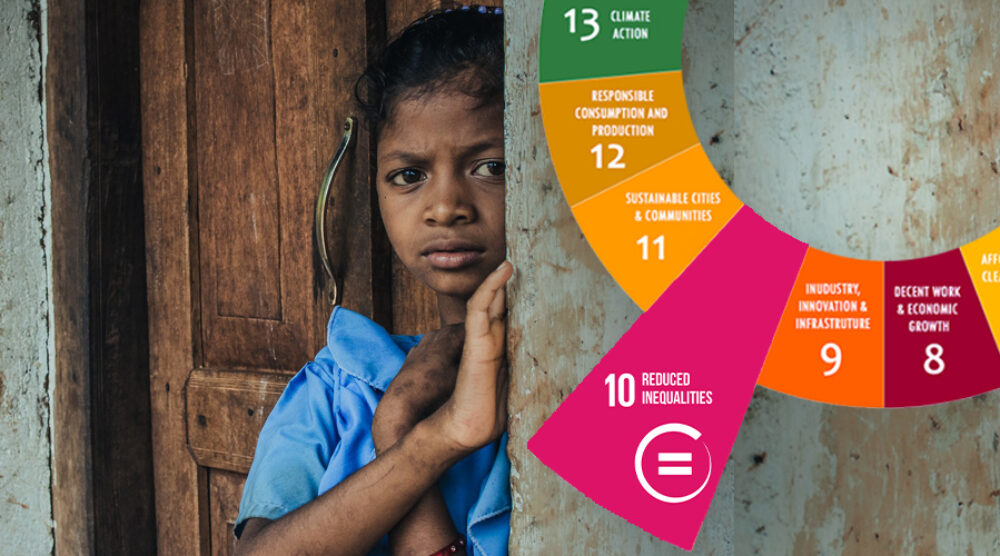The effects of Foreign Direct Investment (FDI) are widely debated in academic, policymaking and development circles. In a time of prolific economic globalisation, accelerated through international trade and investment, discussions on FDI, income inequality and sustainable economic growth have become more pressing.
For many developing economies, FDI remains the largest external source of finance. Consequently, many countries actively continue policy efforts aimed at attracting foreign investment.
Policy makers and economists hold that FDI can contribute to the growth and development of economies through the transfer of modern technology and management skills, human capital development, and the exporting of market access.
While FDI can have a positive impact on recipient economies, critics have suggested that the benefits to the local economy from FDI are limited. With increasing FDI inflows into developing economies, whether these flows affect income inequality or not, becomes an important question.
Several empirical studies have been carried out examining the relationship between FDI and income inequality in developing countries, with findings revealing mixed conclusions. The impact of FDI on income equality remains unresolved in academic and policymaking circles.
What is less disputed however, is that achieving equitable and balanced growth is important for people, society and government. Rising inequality contributes to social unrest and political instability, which undermines economic growth and sustainable development.
Asia-Pacific Economic Cooperation (APEC) is a regional economic forum established in 1989 to leverage the growing interdependence of the Asia-Pacific. Its primary goal is to create sustainable economic growth and development in the Asia-Pacific region through the promotion of free trade and investment, encouraging regional economic integration, and facilitating a favourable and sustainable business environment.
From 17-18 November, leaders from around the world will be in Port Moresby for the 2018 APEC annual leaders summit. This is the first time that Papua New Guinea has hosted such an event. Papua New Guinea has been sold a number of promises for how hosting APEC is for the better, but as the summit draws nearer controversies are emerging. Given the approaching summit and substantial FDI inflows into the APEC region, it is timely to consider the relationship of FDI on income inequality in APEC’s developing economies.The 2030 Agenda for Sustainable Development is made up of 17 Sustainable Development Goals (SDGs). SDG 10 (‘Reduced Inequalities’), aims to reduce inequality both within and between countries. The Asia-Pacific Sustainable Development Goals Outlook report aims to develop a shared understanding of the opportunities and challenges confronting the region.
Increasing gaps between the rich and the poor and low wages, threatens the sustainability of economic growth, social and environmental outcomes. The issue of income inequality remains a development challenge for many developing economies.
In a forthcoming article published by the Asia-Pacific Sustainable Development Journal, we investigate whether FDI inflows are associated with greater income inequality in a sample of 13 APEC developing economies over the period 1990-2015.
In this study, a balanced panel data for 13 APEC economies, namely, Chile, China, Hong Kong; China, Indonesia, Malaysia, Mexico, Republic of Korea, Peru, Philippines, Singapore, Taiwan; Province of China, Thailand, and Viet Nam, from 1990 to 2015, are used. There are 21 economies in the APEC region, but this study only considers developing economies.
The above countries were chosen because of reliable and consistent data available during the period. The following variables were selected: annual time series data on GINI coefficient, FDI inflows, GDP per capita, trade openness and human capital.
We find that FDI inflows do reduce income inequality within APEC’s developing economies in the long-run. However, in the short-run, FDI inflows do not affect income inequality. Increasing FDI inflows does not lead to immediate changes in income inequality, but after some time the effects start to become more apparent.
The results also confirm that GDP per capita and trade openness help reduce income inequality, while human capital widens income inequality. The results from this study suggest that APEC authorities could implement sound policies to attract further FDI, as evidence indicates that those inflows would narrow income inequality in APEC economies.
Policymakers and government authorities in those economies should initiate appropriate policies and provide various types of financial and non-financial support to help domestic firms continue to reap the benefits from multinational enterprises.
The upcoming APEC leaders summit presents a timely opportunity to discuss such prospects.








